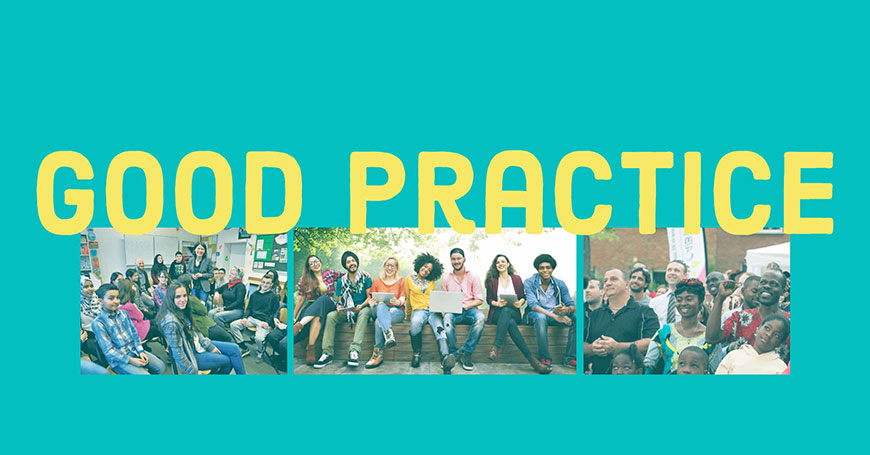Intercultural cities: good practice examples

The first step is the adoption (and implementation) of strategies that facilitate positive intercultural encounters and exchanges, and promote equal and active participation of residents and communities in the development of the city, thus responding to the needs of a diverse population. The Intercultural integration policy model is based on extensive research evidence, on a range of international legal instruments, and on the collective input of the cities member of the Intercultural Cities programme that share their good practice examples on how to better manage diversity, address possible conflicts, and benefit from the diversity advantage.
This section offers examples of intercultural approaches that facilitate the development and implementation of intercultural strategies.
Community Grants
Purpose: Encourage citizens’ participation and involvement in the city through access to public grants for community projects Process: Community Development is a process where community members...
Residents’ participation shows meaningful community engagement
Purpose: Salisbury seeks the participation of all residents through community workshops and surveys Process: The adoption of the Intercultural Strategic Plan 2017-2027 of the City of Salisbury was...
The Diversity Lab
Purpose: The municipality launched the Diversity Lab programme to explore the advantages of cultural diversity, with reference to new plural economies and open innovation processes. An...


